Help! Water damage on shower tile?
Doug Brown
2 years ago
last modified: 2 years ago
Featured Answer
Sort by:Oldest
Comments (62)
Beth H. :
2 years agolast modified: 2 years agoRelated Discussions
X-Post HELP Major Water Damage
Comments (13)Mother....so sorry for your loss. I would call in a HWF specialist asap. A lot of cleaning companies are either duct cleaning companies that do cleaning on the side or full on cleaners..but they are not HWF specialists. If your subfloors are wet, you may need to rip out the HWF to get the subfloor dry. Trust me, I had mold in this house when I bought it...best to be conservative in the repair as mold is a real PITA to get rid of. Also, I happened to watch a This Old House one night....there is now a clothes washer shutoff valve on a timer. Similar to a light timer, this valve bolts directly onto standard plumbing and if you open the valve, the valve automatically closes after 2 hours of not being touches. I want to install one, as this is my biggest fear of throwing in a load of laundry before leaving for work. Good luck, hope the cleanup goes okay!...See MoreMDF next to shower getting water damage. Is it a leak?
Comments (19)So an accredited plumbing company came out and they are saying they don't think it's the liner/pan however decided to run a pan leak test. Currently it's been about 6 hrs after they filled up the shower base with water and plugged the drain. So far the water level is right where it started. I'm not sure what the issue can be. They informed me in the mean time I need to get the long grout crack fixed as well as re-caulk the bottom of the shower bench, edges of the shower and shower floor. I'm still confused what's causing this....See MoreHelp please...Need advice on Kitchen deco after water damage
Comments (14)Hi HU- I don't know anything about refinishing granite to give it a totally different appearance. The person to ask about everything countertops is Joseph Corlett, LLC here on Houzz. Why not invite him onto this thread? I personally don't like that speckly type of granite, it reminds me of "work" because it is present in so many office buildings. But if you like your granite, keep it. It's your house! And it's a fortune of money to replace it, besides! If you were going to replace it anyway, you could think about using a stone with swirls or some sort of movement, but one that is lighter overall. Or go the other way, and use a very dark counter such as a soapstone, or a soapstone look-alike (and you could decide how much veining you want) and paint the walls a very very light gray in the kitchen. (Soapstone even comes in green!) Or you could even think about Corian. Which now comes in a dazzling array of colors and a very affordable price point. Joe is a Pro, and really sings the praises of Corian which is versatile and lasts forever and can be repaired in ways natural stone can't. As for the flooring, I would have the kitchen match the rest of your house. What you already have down looks just perfect. If you are really wanting to spend money on something, I would eliminate the space at the top of your upper cabinets. Either make simple cabinets for things like trays, etc. or put up a crown molding to the ceiling. The space looks odd and is a huge dust catcher. I would not paint the island, the wood is too perfect. You can add color to the kitchen with a floor mat, dishcloths, accessories, etc....See MoreBroken tile installed in shower - worried about water damage later.
Comments (7)Hi Joseph! I did a to scale size model of both walls (back with window and niche walls) in Photoshop. Following the diagram meant he would have had to shorten every tile in the first row and the top row - which he did not do. The Dremel tool is a good idea but I'm having him redo the niche like the photo on the box - it will do away with the little sliver but it won't line up exactly. With the current layout there will be another sliver about an inch long over the window. The only way this can be remedied is by taking out all of the tile and starting with a shorter bottom row. Do you think that one inch pieces over the window will hurt anything? - its boxed in with a header. I can live with it if it will be okay. Thanks!...See MoreJeff Meeks
2 years agoDoug Brown
2 years agoDoug Brown
2 years agoFori
2 years agoDoug Brown
2 years agoDoug Brown
2 years agoDoug Brown
2 years agoFori
2 years agoDoug Brown
2 years agoBeth H. :
2 years agolast modified: 2 years agoDoug Brown
2 years agoDoug Brown
2 years agoBeth H. :
2 years agolast modified: 2 years agoDoug Brown
2 years agoBeth H. :
2 years agoCarrie B
2 years agoBeth H. :
2 years agolast modified: 2 years agoDragonfly Tile & Stone Works, Inc.
2 years agocatbuilder
2 years agoBeth H. :
2 years agolast modified: 2 years agoPatricia Colwell Consulting
2 years agoJeff Meeks
2 years agoJeff Meeks
2 years agoLisa
2 years agoJeff Meeks
2 years agocatbuilder
2 years agoDragonfly Tile & Stone Works, Inc.
2 years agoDoug Brown
2 years agoJoseph Corlett, LLC
2 years agoJeff Meeks
2 years agolast modified: 2 years agoDragonfly Tile & Stone Works, Inc.
2 years agoJeff Meeks
2 years agolast modified: 2 years agoDragonfly Tile & Stone Works, Inc.
2 years agolast modified: 2 years agoJeff Meeks
2 years agoDragonfly Tile & Stone Works, Inc.
2 years agoDoug Brown
2 years agoDoug Brown
2 years agoDragonfly Tile & Stone Works, Inc.
2 years agolast modified: 2 years agoDoug Brown
2 years agoDragonfly Tile & Stone Works, Inc.
2 years agoDoug Brown
2 years agoDoug Brown
2 years agoJeff Meeks
2 years agolast modified: 2 years agoDoug Brown
2 years agoJeff Meeks
2 years agoDoug Brown
2 years agoJeff Meeks
2 years agolast modified: 2 years agoDragonfly Tile & Stone Works, Inc.
2 years ago
Related Stories
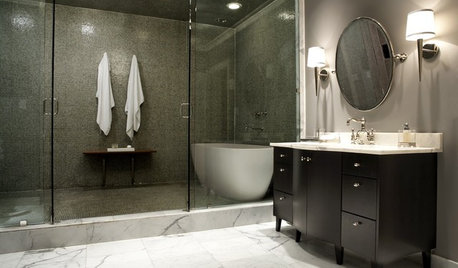
BATHROOM DESIGNHow to Choose Tile for a Steam Shower
In steamy quarters, tile needs to stand up to all that water and vapor in style. Here's how to get it right the first time
Full Story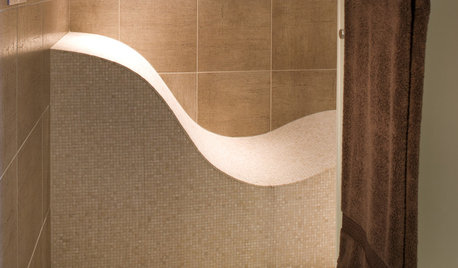
REMODELING GUIDESTop 10 Tips for Choosing Shower Tile
Slip resistance, curves and even the mineral content of your water all affect which tile is best for your shower
Full Story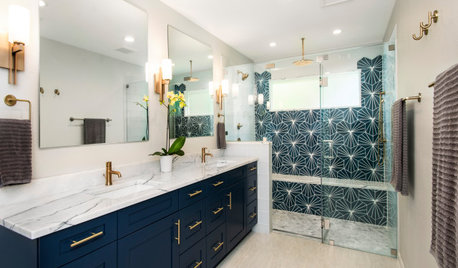
BATHROOM MAKEOVERSBathroom of the Week: Bold Blue Tile and a Walk-In Shower
A designer helps a Texas couple flip their master suite layout for a better view and a bigger, more spirited bathroom
Full Story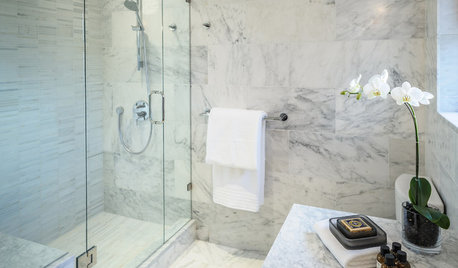
BATHROOM DESIGNConvert Your Tub Space Into a Shower — the Tiling and Grouting Phase
Step 3 in swapping your tub for a sleek new shower: Pick the right tile and test it out, then choose your grout color and type
Full Story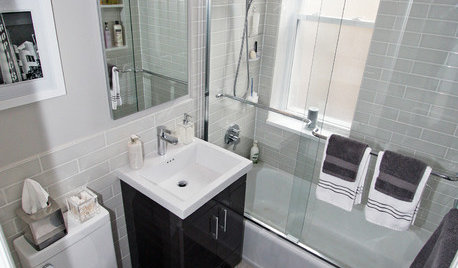
BATHROOM DESIGNWater Damage Spawns a Space-Saving Bathroom Remodel
A game of inches saved this small New York City bathroom from becoming too cramped and limited
Full Story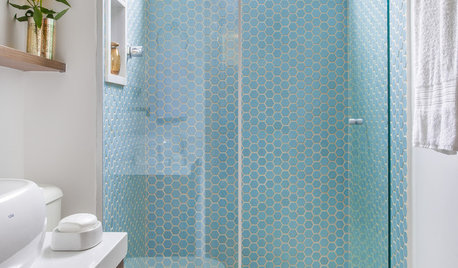
SHOWERSShower Design: 13 Tricks With Tile and Other Materials
Playing with stripes, angles, tones and more can add drama to your shower enclosure
Full Story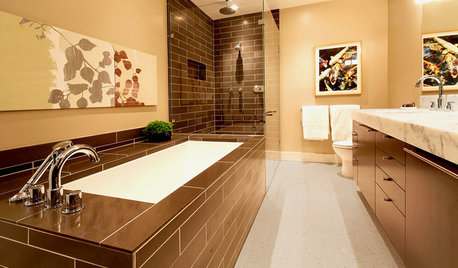
BATHROOM DESIGNDesigner Trick: Take Your Shower Tile to the Ceiling
Tile the whole wall in your shower to give your bath a light and lofty feel
Full Story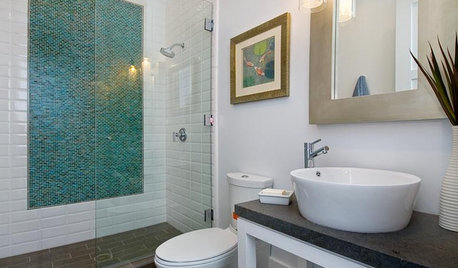
BATHROOM DESIGNAccent Tile Stands Out in the Shower
A Little of Your Favorite Tile Adds a Lot of Color and Fun
Full Story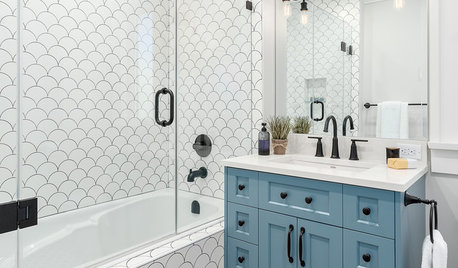
BATHROOM DESIGNShower Curtain or Shower Door?
Find out which option is the ideal partner for your shower-bath combo
Full Story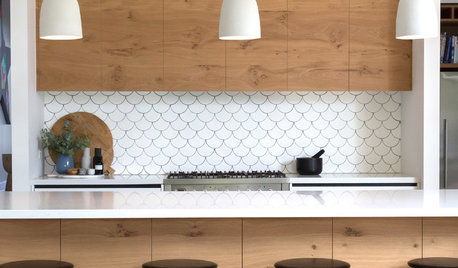
TILELet’s Talk Tile: An Alphabetical Guide to Tile Terminology
Get set for a tile project with this handy glossary of shapes, materials, finishes and more
Full Story






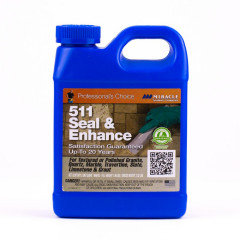

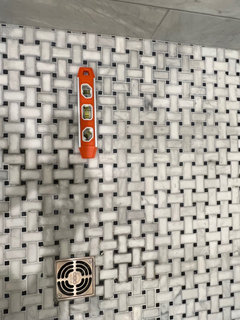
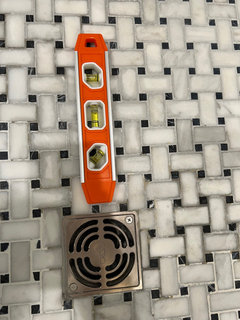
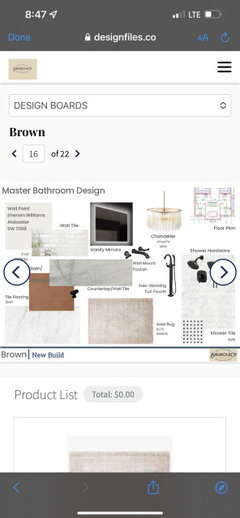
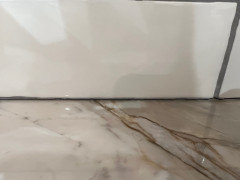




Jeff Meeks